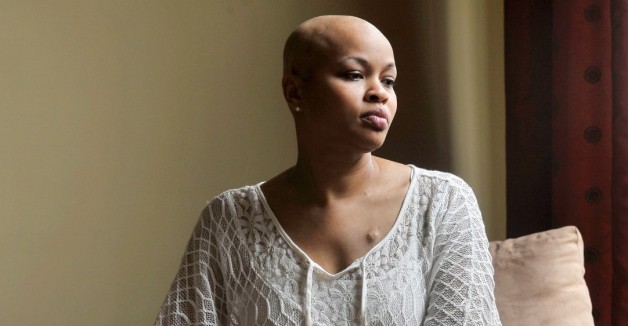 Young black women have a higher rate of breast and ovarian cancer-related gene mutations than previously believed, a new study finds.
Young black women have a higher rate of breast and ovarian cancer-related gene mutations than previously believed, a new study finds.
These inherited mutations occur in the BRCA1 or BRCA2 genes. It has been estimated that about 5 percent of breast cancer patients in the United States have these mutations, but previous studies included mostly white women. This latest study, published recently in the journal Cancer, found that the rate among young black women is much higher.
Although the overall prevalence of breast cancer is higher in white women, black women younger than 50 are much more likely than white women to be diagnosed with aggressive types of breast cancer and to die from the disease, but the reasons for these disparities are unclear. Moffitt Cancer Center researchers looked at BRCA mutation rates for an answer.
Women with these mutations have a dramatically increased risk of breast cancer, with 55 to 65% of BRCA1 mutation carriers and 45% of BRCA2 carriers developing breast cancer by age 70, compared to 8% of women in the general population. Additionally, women with BRCA mutations tend to develop breast cancer at a younger age, often bilaterally (in both breasts), and frequently as a more aggressive subtype, such as triple-negative breast cancer.
For the study, the investigators looked at BRCA mutation rates among nearly 400 black women in Florida who were diagnosed with invasive breast cancer before age 50. They found that more than 12 percent of these women had either BRCA1 or BRCA2 mutations — more than twice the rate we previously thought.
The study also showed that more than 40 percent of the women with a BRCA mutation had no close relatives with breast or ovarian cancer. This suggests that family history doesn’t always identify women who may have BRCA mutations, the researchers said. It may also indicate that the risk factors for BRCA mutations are different for black than white women, underscoring the importance of racial diversity in medical studies.
“Our results suggest that it may be appropriate to recommend BRCA testing in all black women with invasive breast cancer diagnosed at or below age 50,” study leader and clinical geneticist Dr. Tuya Pal, from the Moffitt Cancer Center in Tampa, Fla., said in a center news release.
If a woman learns she has BRCA mutations, she can choose to have more intensive breast cancer screening or preventive breast or ovary removal. She can also make family members aware of this genetic risk so they can take steps to prevent cancer, the researchers said. Additionally, this information can help doctors and patients make better decisions about treatment, ultimately improving the chances of long-term survival.
However, the study authors noted that black women are significantly less likely than white women to be referred for or to receive genetic testing and counseling. This is linked to a number of factors, including higher rates of uninsurance and unstable insurance coverage among blacks, as well as implicit racial bias among health care providers and long-standing disparities in the health care system.
The researchers said high-risk black women need improved access to such services, adding: “Our results further highlight the importance to increase awareness and access to genetic testing services in Blacks, to help address the growing health disparities in clinical cancer genetics.”
